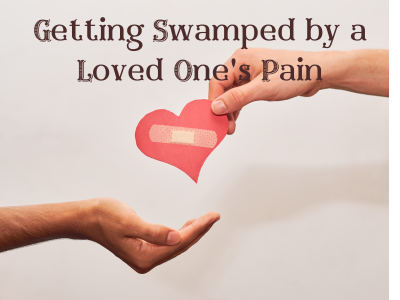It is only natural to want the people we love to be happy. When they are in pain, we feel the heaviness of their grief as well because we are attached. So we do whatever we can to ease their discomfort – listening to them, supporting them by making ourselves physically and emotionally available, and whatever else we think will comfort them.
And all that is great. We are social beings; we need nurturance and succorance. Nurturance is the need to care for others while succorance is the need to receive help and support.
So can there be an excess of nurturance? Yes, if you start feeling the heaviness of the other’s experience such that it leaves you feeling helpless and despairing. That is getting pulled down by the other’s pain. It happens when we put ourselves in the position of the Fixer. We do it voluntarily or it is demanded of us – but ultimately, we choose to take on that role.
Playing the role of The Fixer is exhausting. And it is not helpful for the growth of the one who suffers also. Nobody can fix another person’s life, only that person can.
This is where Compassion differs from Empathy. Sharon Salzberg explains this beautifully in this article. Let me share some excerpts here.
In the Buddhist tradition, which I’ve been a student of for nearly 50 years, compassion is known as the trembling or the quivering of the heart in response to seeing pain or suffering. It’s a movement of the heart, and it’s a movement toward seeing if we can be of help.
As Thich Nhat Hanh has said, “Compassion is a verb.” Compassion has qualities of self-sufficiency, of wholeness, of not being broken or shattered when facing states of suffering. It has qualities of openness, of spaciousness, of resiliency. It is born out of loving kindness, of knowing our oneness (with other people), not just thinking about it or wishing it were so.
You can think of compassion as your intention that motivates your actions. Sometimes that might mean taking very strong actions that are rooted in compassion, like saying no and not giving the money or holding very strong boundaries.
If you feel swamped by someone else’s pain, it helps to connect them with a professional. The unbiased environment of the coaching space alone can heal. With powerful questions posed by the coach and one’s own reflection and inner awareness, times of difficulty can become powerful experiences of change and growth.

